DTP: INSPIRE
Author: Lucy Moore Fuller
Olivia Shears
DTP: Cambridge ESS
Nora Salland
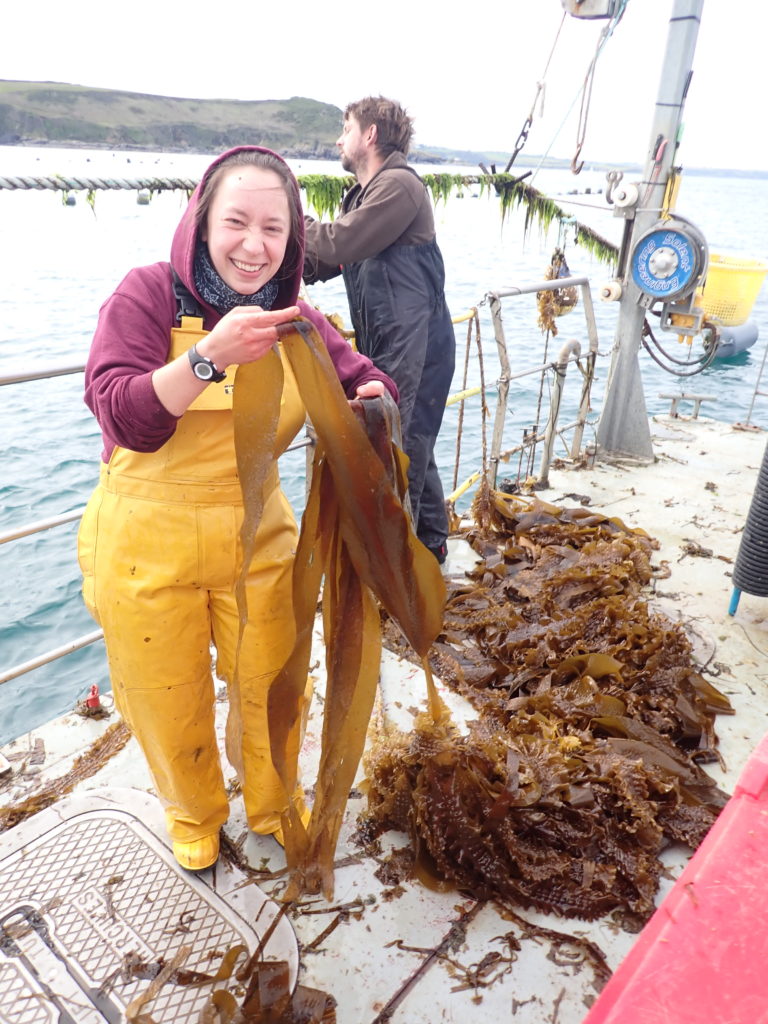
Hi, I am Nora, a marine ecologist and PhD student with keen interest in kelp forest community structure. I am based at the Marine Biology Association in Plymouth in Dan Smale’s group (BEECH – Benthic Ecosystems and Environmental Change) and a student of the University of Southampton (INSPIRE DTP, cohort 1).
Please follow my work on ResearchGate and Twitter @nora_mare).
Present work:
My research is focused on the effects of climate change stressors (especially ocean warming) on foundation species such as kelps and their associated flora and fauna community. I will explore resulting physiological responses of kelp to changing conditions on both individuals and population based levels, as well as the impacts on the entire ecosystems.
During my first year I collected data of the understudied kelp Sacchoriza polyschides (commonly known as ‘Furbellows’), which is a warm-temperate kelp and might expand its distribution range in the NE Atlantic and increase its population size due to ocean warming. This year, I will start multifactorial mesocosm experiments with “global warming winner” vs. “global warming loser” species. I am also very interested in ecosystem services and the value kelps provide for the ecosystem, the environment and our society.
Past projects:
In 2018 I graduated from the University of Rostock, Germany, in Marine Biology (MSc) after completing Biological Science (BSc) in 2015. My master thesis focused on effects of ocean warming on grazer-algae interactions as part of the GAME project (collaboration with the GEOMAR Helmholtz Centre for Ocean Research Kiel, Germany, and the Universidad Católica del Norte in Coquimbo, Chile). You can read a blog post about my part within the GAME project here.
I have practical experience from several sea-going scientific expeditions (North Sea and Baltic Sea) as well as working experience (field and lab based) in Chile, Canada and New Zealand.
Nicole Forstenhaeusler
I am PhD student based in the Tyndall Centre for Climate Change Research at the University of East Anglia, studying the effects of climate change on global fluvial flooding and investigating how flood models can be improved by use of regionalisation methods. My research is jointly funded by the Faculty of Science of the University of East Anglia and the Amar-Franses and Foster-Jenkins Trust. I am supervised by Dr. Ing. Yi He, Prof. Timothy Osborn and Prof. Andrés Bárdossy (based at the University of Stuttgart, Germany).
The aim of my PhD project is the development of a regionalised global hydrological model to assess the impacts of climate change on flood risks. To date, only a handful of global hydrological models to simulate long-term water balance and to simulate streamflow have been developed. These models often suffer from a lack of regionalised model parameters which renders their simulation output somewhat unreliable. With my work I aim to address this shortcoming of existing models and to thus increase the reliability of flooding projections under changing climatic conditions.
Prior to working on my PhD, I completed a MSc in Environmental Sciences at the University of East Anglia and spent 4 years working as a research associate. My research focused on climate change impacts, primarily on agricultural yield and biodiversity but also on drought and flooding. Among others, I contributed to the HELIX (high-end climate impacts and extremes) and the EUCalc (European Calculator) project.
Nele Reyniers
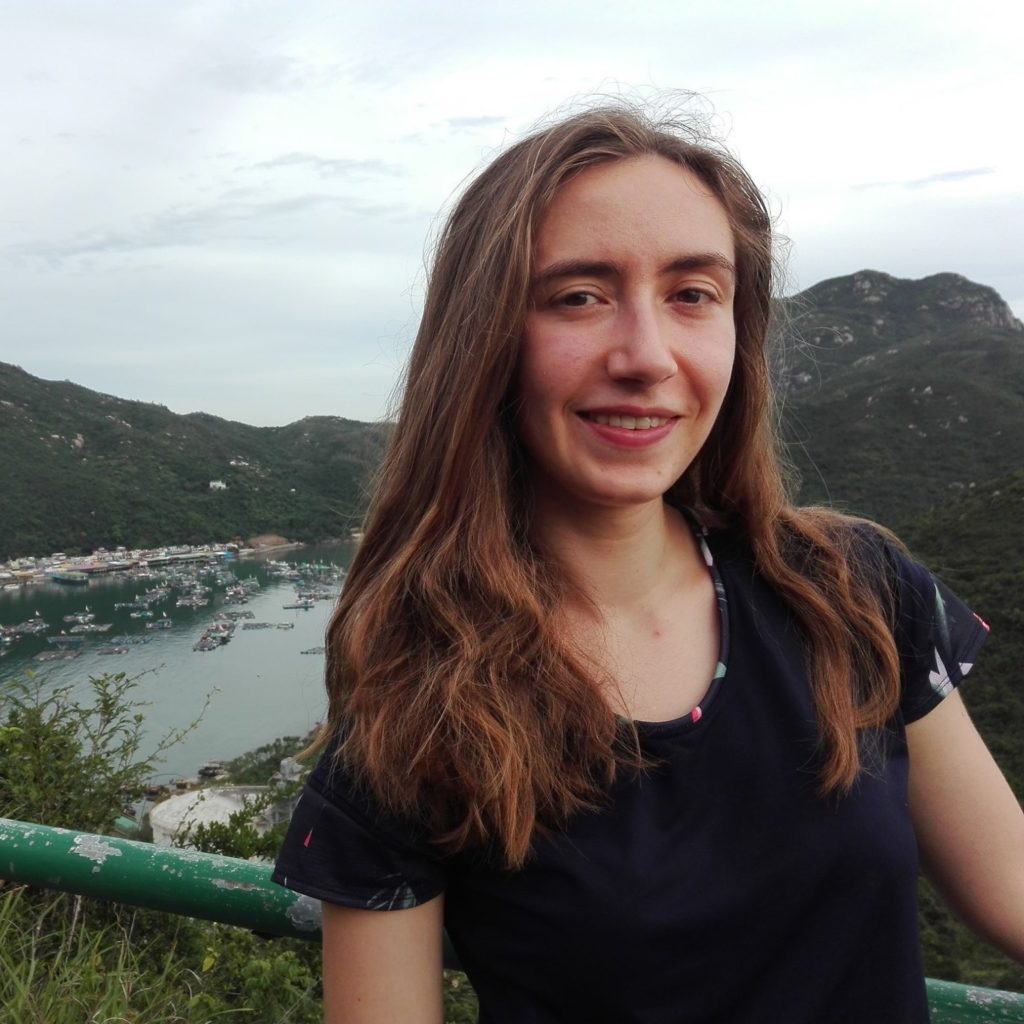
My PhD project is an industry-academia collaboration between the University of East Anglia and Anglian Water facilitated by the Anglian Centre for Water Studies. In this work, I aim to improve our understanding of how climate change affects the extreme droughts of the future and how these droughts can put water resources at risk, thereby supporting Anglian Water’s efforts to plan for drought resilience and adaptation to climate change.
During my studies at Ghent University (Belgium), where I obtained my MSc in Bioscience Engineering: Land and Water management, I developed a passion for programming and modelling, later followed by a soft spot for data visualization. Following my PhD, I would like to continue to further develop these skills and apply them to the critically important topic of water management, or more broadly to climate change adaptation and mitigation.
Please do not hesitate to contact me at N.Reyniers@uea.ac.uk for more information.
Links:
Nele’s project on the Anglian Centre for Water Studies website (thanks to Gabriella Everett)
Natasha Mannion
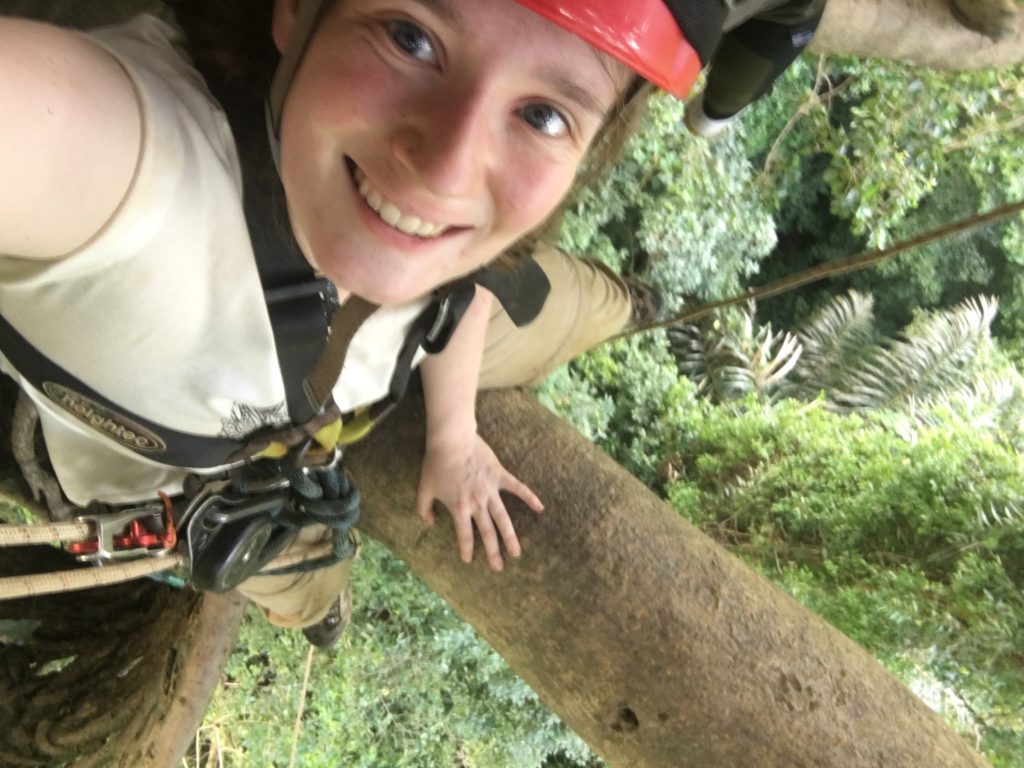
Natasha is a 1st year PhD student at Newcastle University, investigating biodiversity responses to infrastructure expansion in the Heart of Borneo, Brunei Darussalam.
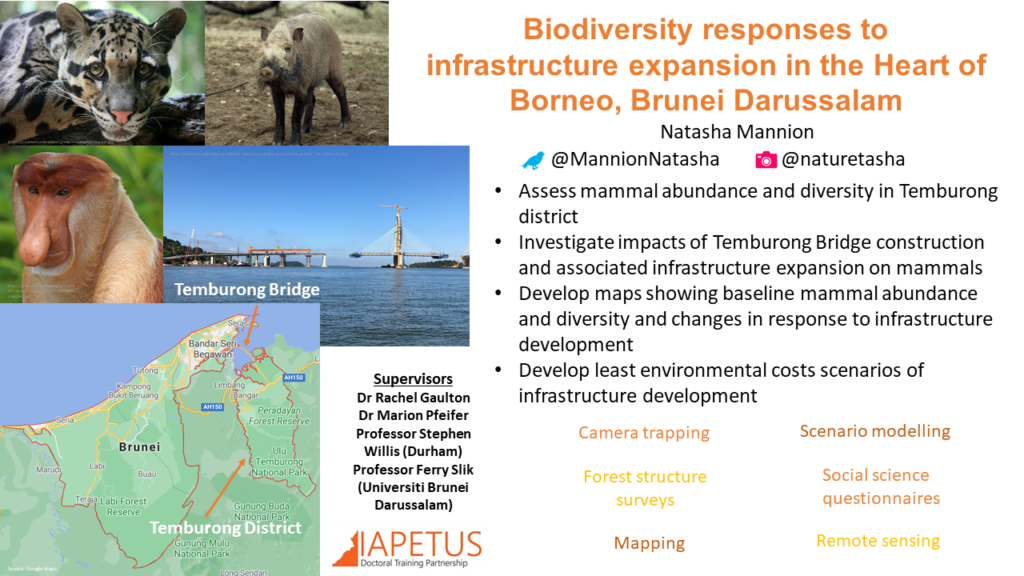
Natalie Yoh
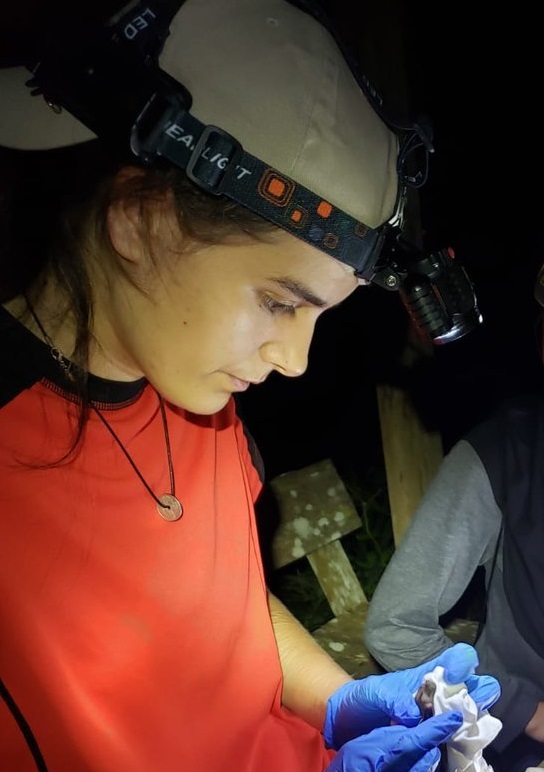
Natalie is currently an EnvEast NERC funded PhD student at the Durrell Institute for Conservation & Ecology, University of Kent.
For her thesis, she is investigating the use of acoustics in monitoring tropical vertebrate responses to land-use change in Borneo, under the supervision of Dr M. Struebig and Dr J. Bicknell, as part of the Leverhulme Tropical Defaunation Hub. The focus of this project is to use machine learning to automate bat monitoring in this region and to assess how palm oil and logging impact these species.
Prior to joining DICE, she undertook her Masters in Environmental Management at the University of Salford investigating the impacts of habitat fragmentation on bats in the Amazon. During her studies she has collaborated on projects investigating the effects of land-use change in Central & South America, as well as Asia, and Western Europe. She is also part of the editorial board for the Journal of Bat Research & Conservation and is a keen member of the Women in Conservation Canterbury Network.
Links:
Nancy Walker

DTP: INSPIRE
Twitter: https://twitter.com/nancy_c_walker
PhD Project Title: Modelling the mechanisms of olive dieback caused by Xylella fastidiosa biofilms
Supervisory Team: Prof. Tiina Roose (UoS), Dr. Steven White (UKCEH), Dr. Maria Saponari (CNR Bari)
Qualifications:
First Class MMath (with Honours), University of Warwick
Dissertation – Joint Optimisation of Spatial and Temporal Derivatives for Simulations of Varying Amplitude Waves (supervised by Dr Ed Brambley)
Research interests:
- Image-based modelling
- Numerical methods for PDEs
- Fluid Dynamics
Michael Buckingham
DTP: SPITFIRE
Matthew Brady

I’m Matthew Brady, a PhD student in the Department of Earth Sciences at the University of Cambridge. My research focuses on using water isotopes to deconvolve complex climate histories through experiments and novel records. Currently, I am focussing on the tropical response to Heinrich Events over the last 45ka using a 3D-printed lake basin model in conjunction with core record to better constrain the environment over this period of Earth’s history. I have a strong interest in climate impact mitigation of which carbon storage is fundamentally necessary if we are to achieve the 1.5C target. I am very excited to take part in the enviroSPRINT event and I am looking forward to learning more and hearing the ideas of fellow post-graduate researchers!
Links
Email: mpb68@cam.ac.uk
Twitter: @GeologistBrady
